 Petzlover
Petzlover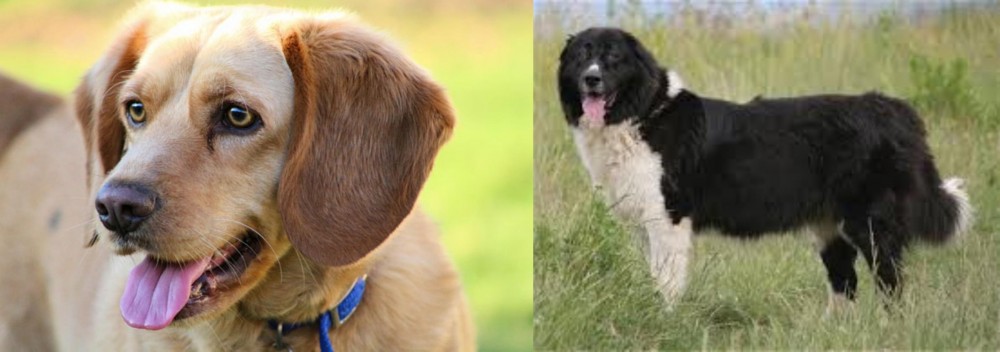 Beago is originated from United States but Bulgarian Shepherd is originated from Bulgaria. Beago may grow 34 cm / 13 inches shorter than Bulgarian Shepherd. Beago may weigh 39 kg / 85 pounds lesser than Bulgarian Shepherd. Beago may live 42 years less than Bulgarian Shepherd. Both Beago and Bulgarian Shepherd has same litter size. Both Beago and Bulgarian Shepherd requires Moderate Maintenance.
Beago is originated from United States but Bulgarian Shepherd is originated from Bulgaria. Beago may grow 34 cm / 13 inches shorter than Bulgarian Shepherd. Beago may weigh 39 kg / 85 pounds lesser than Bulgarian Shepherd. Beago may live 42 years less than Bulgarian Shepherd. Both Beago and Bulgarian Shepherd has same litter size. Both Beago and Bulgarian Shepherd requires Moderate Maintenance.
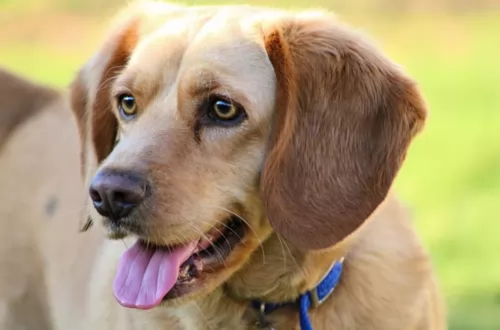 Made up of two purebred dog breeds, the Beagle and the Golden Retriever, Beago is kind of new breed. Some say that they were bred on purpose during the 1980s, in a desire to create a smart and loving dog that will be a smaller size than the Golden Retriever since this will make them ideal for indoor life.
Made up of two purebred dog breeds, the Beagle and the Golden Retriever, Beago is kind of new breed. Some say that they were bred on purpose during the 1980s, in a desire to create a smart and loving dog that will be a smaller size than the Golden Retriever since this will make them ideal for indoor life.
 The Bulgarian Shepard Dog comes from the ancient line of Molossers of Central Asia and Tibet, and the shepherds of the Balkans, Turkey and Caucasus. Among the oldest and most valued of the working dogs of Europe, the Bulgarian Shepherd breed was created by mixing the Balkan breeds with the dogs from Central Asia by the proto-Bulgarians around the 7th century. The Karakachanskoto Kuche was introduced to Bulgaria and accepted by the sheep herders. Mixing this breed in with the Balkan and Central Asian mix developed the Bulgarian Shepherd we know today. In the long run the original Karakachanskoto Kuche became extinct, replaced entirely by the Bulgarian Shepherd even in places where the new breed is still called by the Kuche name. Although the breeds are not the same, most of the dog world does not know the difference.
The Bulgarian Shepard Dog comes from the ancient line of Molossers of Central Asia and Tibet, and the shepherds of the Balkans, Turkey and Caucasus. Among the oldest and most valued of the working dogs of Europe, the Bulgarian Shepherd breed was created by mixing the Balkan breeds with the dogs from Central Asia by the proto-Bulgarians around the 7th century. The Karakachanskoto Kuche was introduced to Bulgaria and accepted by the sheep herders. Mixing this breed in with the Balkan and Central Asian mix developed the Bulgarian Shepherd we know today. In the long run the original Karakachanskoto Kuche became extinct, replaced entirely by the Bulgarian Shepherd even in places where the new breed is still called by the Kuche name. Although the breeds are not the same, most of the dog world does not know the difference.
In Bulgaria however the Karakachan is a national treasure and the history of the breed runs deep. One Kuche could run up to 1200 animals and hundreds were used by the herdsmen in the mountains of Bulgaria. There were many regional types of Bulgarian Shepherds with very little difference between those types. These dogs were so prized by the shepherds that the dogs ate first before the people. The dogs however ate a vegetarian diet of milk, wheat, water and oats. The Bulgarian Shepherd lives a long life of often over 20 years. The Bulgarian Army made good use of these dogs early in the 20th century.
Following World War II, the wolves were close to extinction and property in Bulgaria was nationalized. There was no longer a need for a large force of working dogs. The Communist government exterminated large numbers of sheep dogs including the Bulgarian Shepherd. Only those species on government owned farms and in remote regions survived. When the government farms were disbanded in the early 20th century, these dogs were exterminated as well. Only those in the mountains survived. Commercial breeding of the Bulgarian Shepherd in the end of the century has resulted in controversy as other breeds came into the breeding program.
Use of breeds such as Sarplaninacs, Caucasian Ovcharkas, St. Bernards, Central Asian Ovcharkas and Bosnian Tornjaks in these programs resulted in Bulgarian Shepherd or Karakachans that were a lot different from the original breed. There is therefore some concern about the future of the breed in Bulgaria, yet they received official Bulgarian national recognition in 2000. Today’s Bulgarian Shepherd is a guard dog for both property and livestock.
The official standard for the breed came about in 1991 and in 2005 it was recognized by the Bulgarian State Commission for Animal Breeds. Only those dogs that meet this standard are considered “true” Karakachans. The Bulgarian Shepherds are willing to fight bears and wolves in defense of its family and flock. The dog is brave and loyal, dignified and powerful. They are recognized by both the Dog Registry of America, Inc. (DRA) and the Bulgarian Republican Federation of Cynology (BRFC) a member of the FCI.
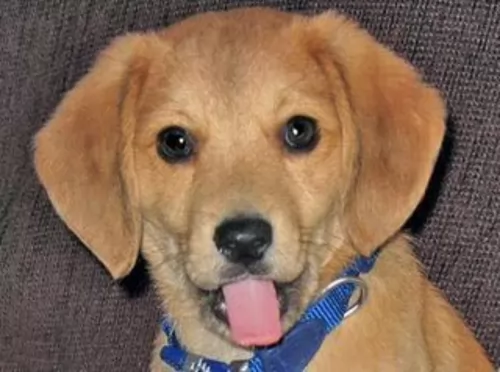 Beago is a medium-sized dog with a usually tri-coloured coat that can vary in some colours. They have usually short hairs because sometimes happens that they have longer hairs if the Golden retriever genes are stronger. Their hairs are soft to the touch and they don’t shed a lot and that makes them easy to maintain. They have dark coloured eyes, floppy ears, and they have the body shape of the Beagle, but they are very active and muscular like the Golden Retriever.
Beago is a medium-sized dog with a usually tri-coloured coat that can vary in some colours. They have usually short hairs because sometimes happens that they have longer hairs if the Golden retriever genes are stronger. Their hairs are soft to the touch and they don’t shed a lot and that makes them easy to maintain. They have dark coloured eyes, floppy ears, and they have the body shape of the Beagle, but they are very active and muscular like the Golden Retriever.
 A massive, powerful and muscular Molosser, the Bulgarian Shepherd is strong, agile, powerful and fast. They are intelligent and reliable. They have a long, thick, harsh coat in white with patches of black. Their skull is massive and broad with a furrowed forehead. The muzzle is massive as well while the nose has wide nostrils and is fairly large. It has close fitting, thick lips with strong, scissor bite jaws. The Bulgarian Shepherd’s eyes are deep, oblique and small. They are either hazel or dark. They have an intelligent and confident, yet firm almost grim expression.
A massive, powerful and muscular Molosser, the Bulgarian Shepherd is strong, agile, powerful and fast. They are intelligent and reliable. They have a long, thick, harsh coat in white with patches of black. Their skull is massive and broad with a furrowed forehead. The muzzle is massive as well while the nose has wide nostrils and is fairly large. It has close fitting, thick lips with strong, scissor bite jaws. The Bulgarian Shepherd’s eyes are deep, oblique and small. They are either hazel or dark. They have an intelligent and confident, yet firm almost grim expression.
Their ears are low set, small and v-shaped. They sit close to the head which sits on a powerful but short neck. They have a broad back, well-muscled body with a deep chest and long, rough tail. Their gait is a trot with a spring in their step. There are two types of coats – longhaired and shorthaired with no undercoats.
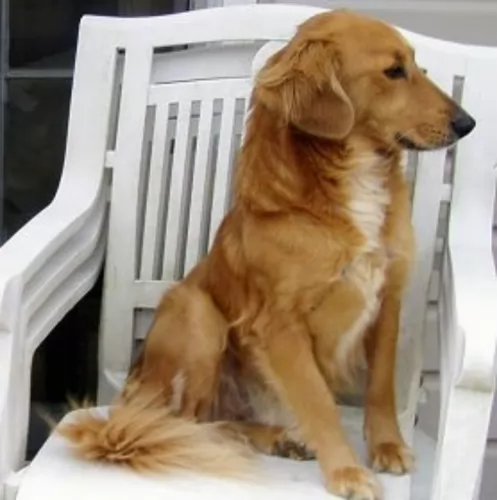 They are very good with children of all age.
They are very good with children of all age.
Hunting, search, rescue dog, agility competitions.
Beago will love living in a house with a bog yard. As well, he will have a happy life in the apartments as long as you take him out for his daily activity. They get along with other pets, so any other dog or cat will be great company for him. They are usually well mannered in public places, if you train them and socialize, but they will always bark if there is someone strange in your house. They are very good with children of all age.
Beage is very smart breed. They will pick up new tricks very quickly and remember it forever. They would love learning new tricks once you include treats as rewards, but you must be careful not to overfeed him.
 This is a working dog, intelligent and independent guard dog. Reserved around strangers but loyal and devoted with his family. Tolerant of children in their family if they were raised with them. Not only will she defend human family members, she will guard and defend household pets as well. He is quite capable of making her own independent decisions. These are very intense guard dogs that will respond aggressively if they think their people are being attacked.
This is a working dog, intelligent and independent guard dog. Reserved around strangers but loyal and devoted with his family. Tolerant of children in their family if they were raised with them. Not only will she defend human family members, she will guard and defend household pets as well. He is quite capable of making her own independent decisions. These are very intense guard dogs that will respond aggressively if they think their people are being attacked.
 There are no general health issues with this breed. The health history shows that they have common health problems as any other active dog – problems with hips and elbows. Because of their floppy ears, they are prone to infections and diseases caused by lack of ear hygiene. Some of them have skin allergies. The best advice is always to make regular vet checks. Then you and your Beago can live a happy and long life.
There are no general health issues with this breed. The health history shows that they have common health problems as any other active dog – problems with hips and elbows. Because of their floppy ears, they are prone to infections and diseases caused by lack of ear hygiene. Some of them have skin allergies. The best advice is always to make regular vet checks. Then you and your Beago can live a happy and long life.
 The breed itself is known to be healthy but they do face some of the usual health issues of the massive, giant breeds. This includes knee and elbow dislocation; hip dysplasia; bloat; entropion and osteosarcoma. All of these conditions require medical intervention, but bloat and osteosarcoma are the deadliest. Bloat needs immediate attention and osteosarcoma is a deadly bone cancer.
The breed itself is known to be healthy but they do face some of the usual health issues of the massive, giant breeds. This includes knee and elbow dislocation; hip dysplasia; bloat; entropion and osteosarcoma. All of these conditions require medical intervention, but bloat and osteosarcoma are the deadliest. Bloat needs immediate attention and osteosarcoma is a deadly bone cancer.
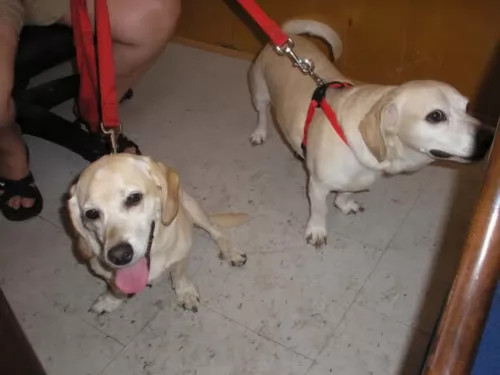 The best tip is to feed them with quality dry food. Canned food can be given once in week or less. They will love cheese and meat in their meal. Since they like to munch, they will eat almost any raw fruit or vegetables. Until you Beago is six months old, feed him tree time per day. Keep the feeding schedule unchanged to form a habit and avoid problems with metabolism.
The best tip is to feed them with quality dry food. Canned food can be given once in week or less. They will love cheese and meat in their meal. Since they like to munch, they will eat almost any raw fruit or vegetables. Until you Beago is six months old, feed him tree time per day. Keep the feeding schedule unchanged to form a habit and avoid problems with metabolism.
Since they don’t shed a lot, grooming your Beago will be easy. They won’t need an everyday brush, but it will be good if you could brush him two times per week and bathe once in a month. Their floppy ears need regular care as well. They need to be cleaned with the ear cleaning solution at least once a week. They will need regular nail trimming as well. They need quality food because they are very active dogs. Make sure not to overfeed them. Daily activity is a must.
Beago is very active breed. They like to spend time outdoors, running, playing fetch, jumping. They will love visiting the dog park or any park that is close to your house. They are very good if taken hiking.
 These are large dogs with large appetites, but you want to keep them lean and active. Feed them at least twice a day with a high quality large or giant dog dry food. Four to five cups of food per day is the maximum.
These are large dogs with large appetites, but you want to keep them lean and active. Feed them at least twice a day with a high quality large or giant dog dry food. Four to five cups of food per day is the maximum.
Patellar Luxation – a floating kneecap or dislocated knee. Will cause lameness.
Osteosarcoma – bone cancer must be treated immediately as it is potentially fatal.
The Bulgarian Shepherd needs a good amount of exercise every day. Remember this is a working breed and they need a job. Long walks every day are essential for his well-being.